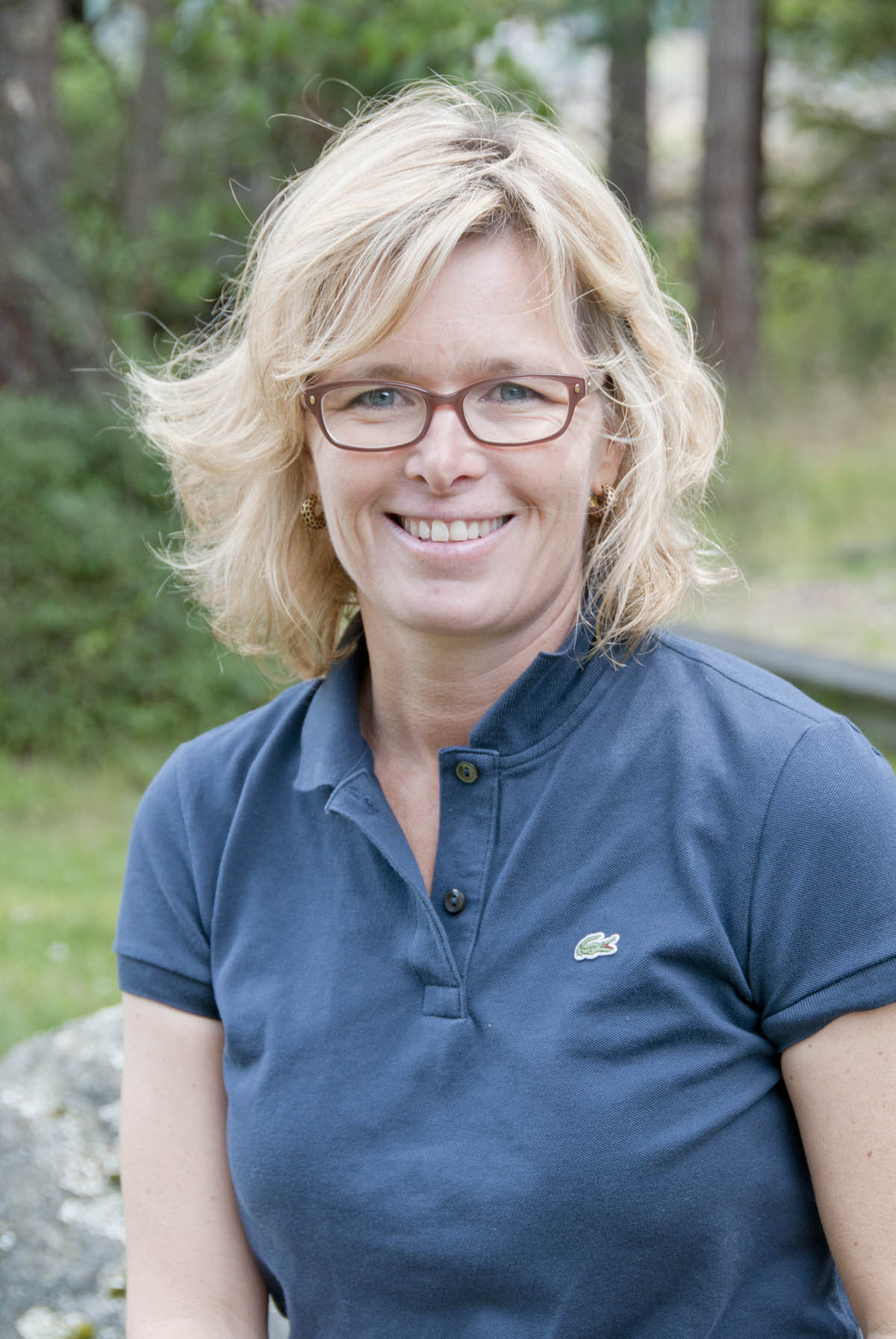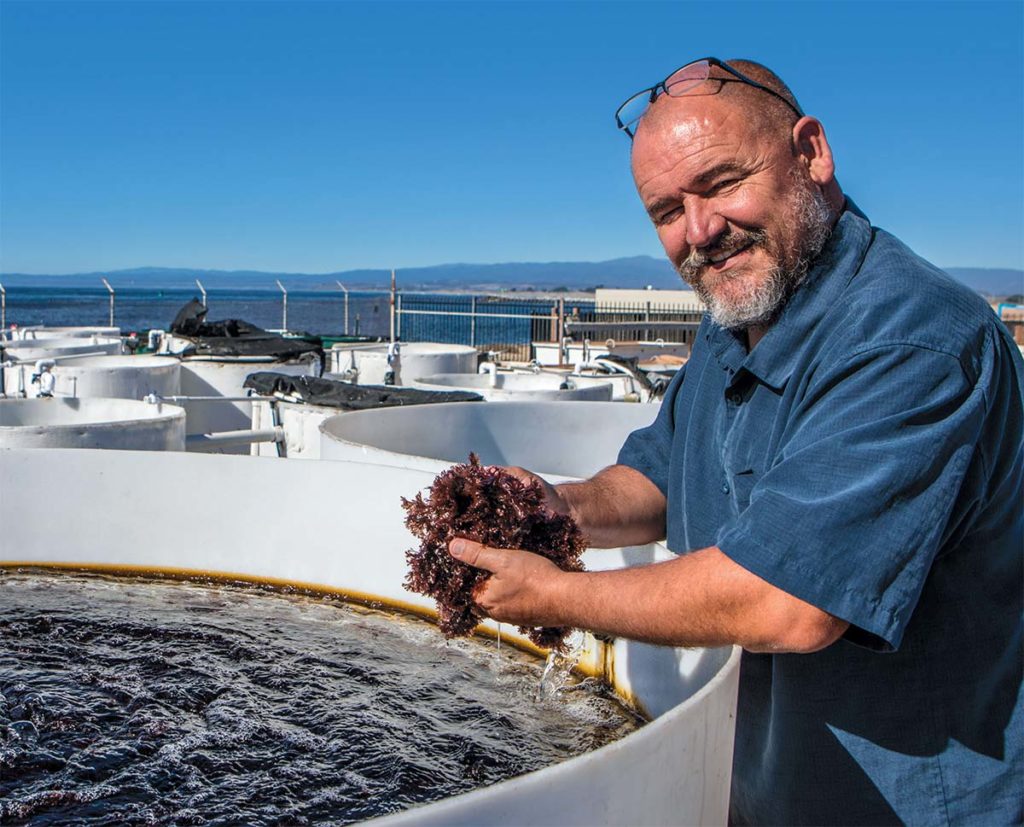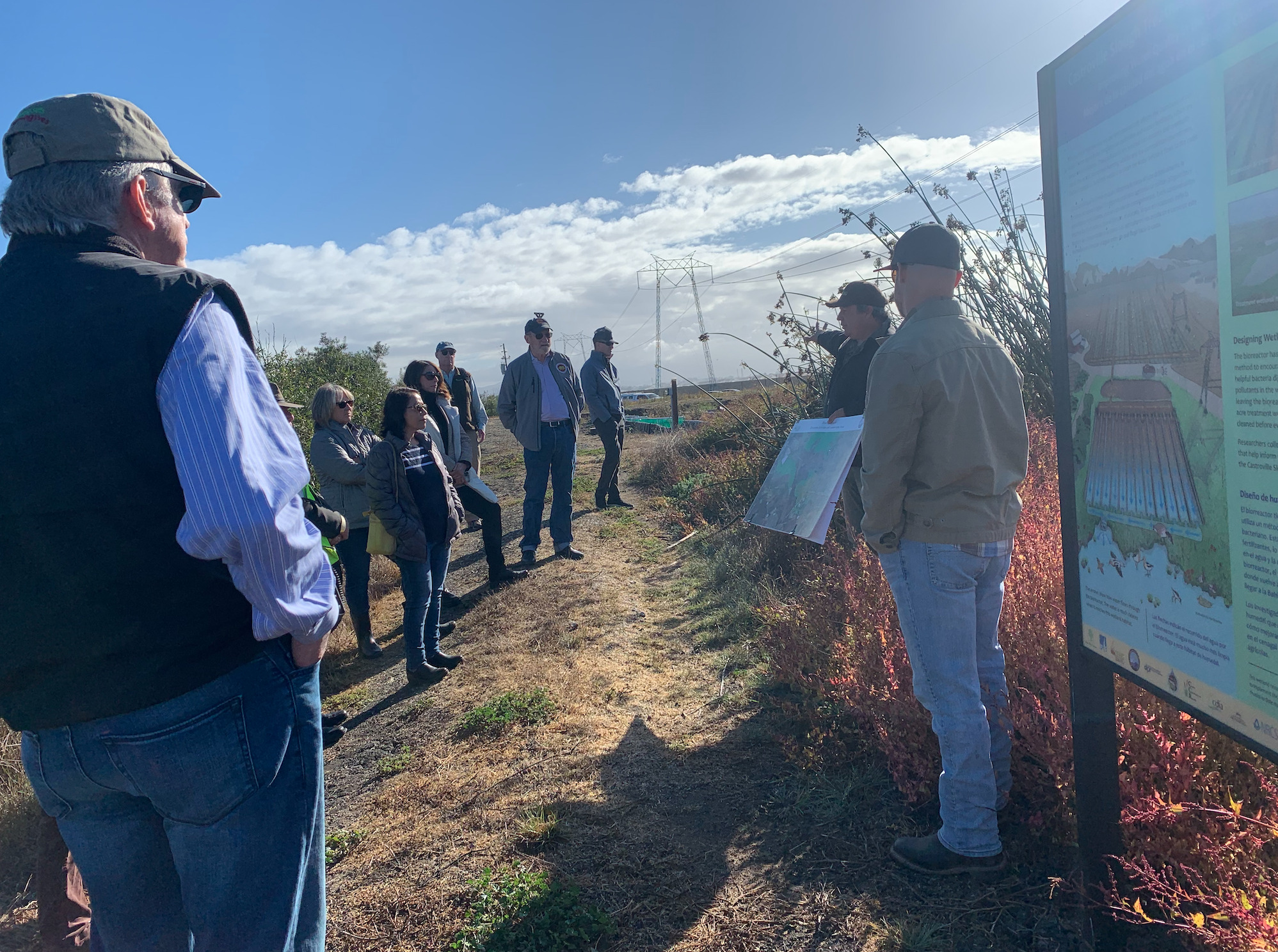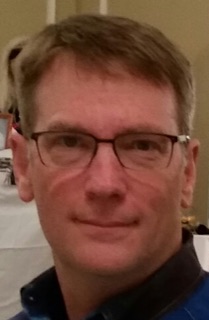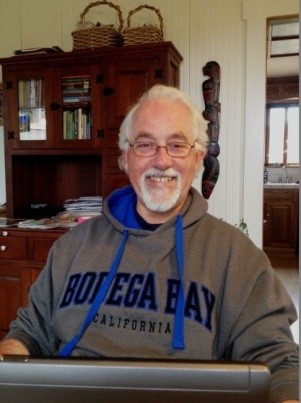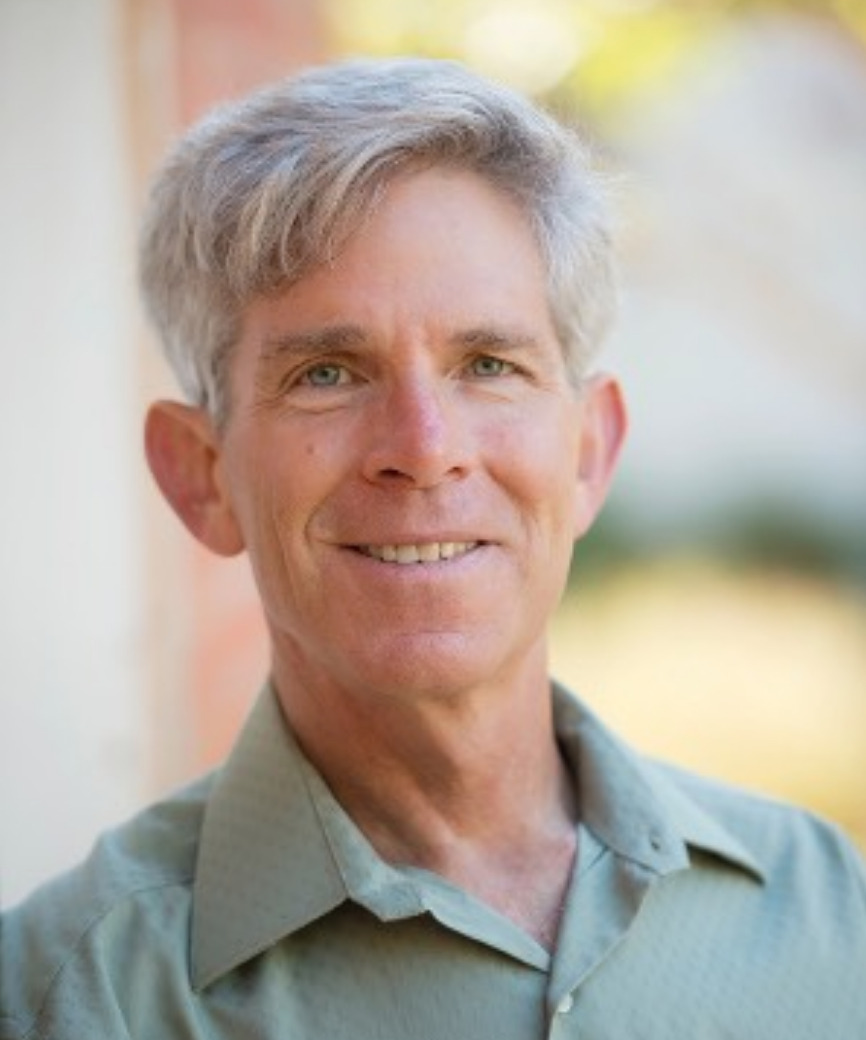Congrats to MLML Ichthyology Lab alumna Sophie Bernstein ’21 on the publication of her thesis research in the scientific journal Harmful Algae!
Domoic acid (DA) is a harmful marine biotoxin produced by algae that accumulates in shellfish and other marine species, especially during harmful algal blooms (HAB). In their study, Sophie and co-authors used stable isotope analysis and DA measurements to investigate how DA is transferred through marine food webs in Monterey Bay. They found that anchovies are better sentinel species for coastal-pelagic regions than mussels, which did not contain any detectable levels of day. Their study demonstrates the efficacy of combining multiple biogeochemical tracers to improve HAB monitoring efforts and identify the main routes of DA transfer across habitats and trophic levels.
Read the open access paper here: Bernstein et al. 2021
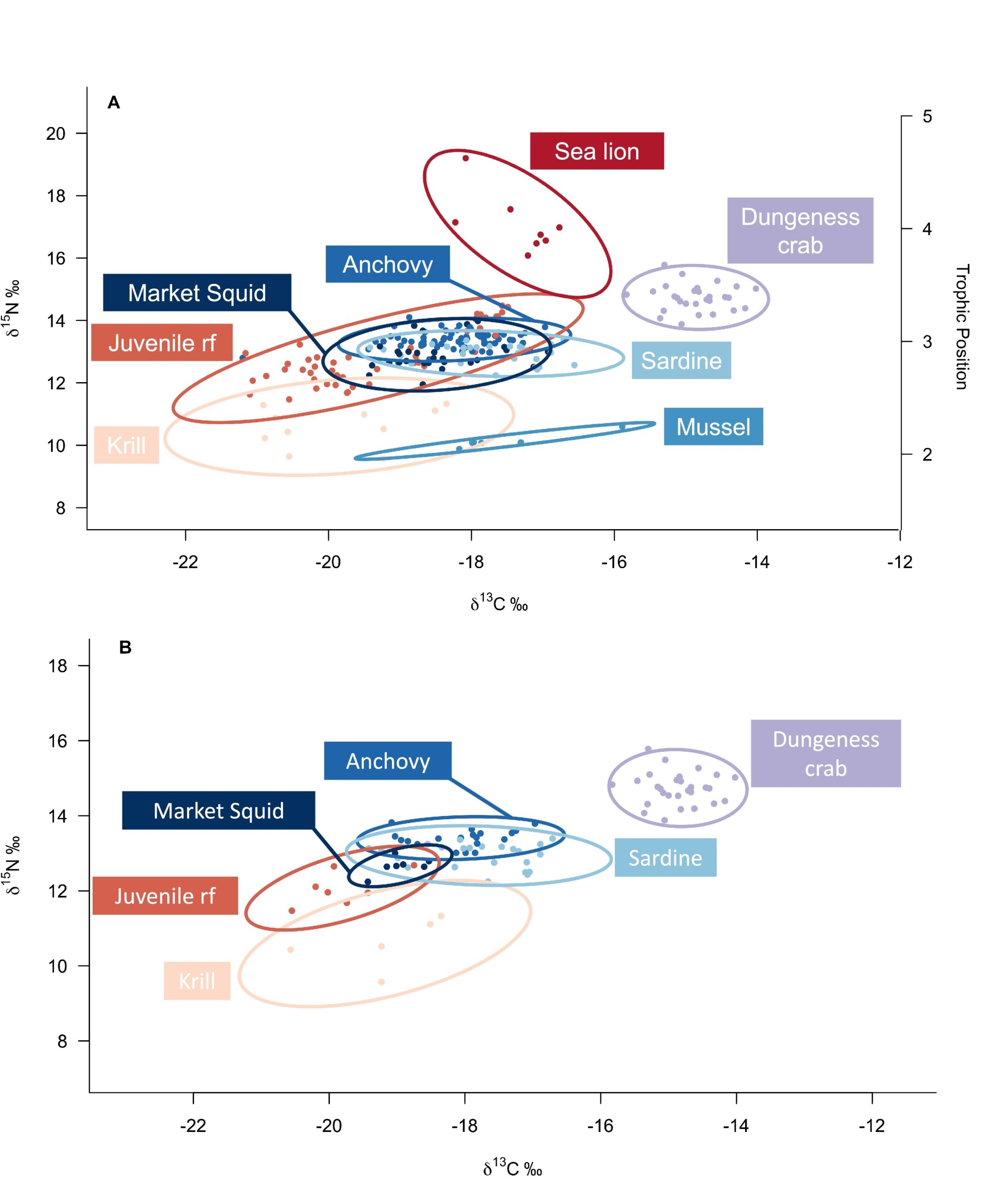
Figure from Bernstein et al. 2021. Isotopic niches of potential DA vectors, crabs and predators vulnerable to DA toxicosis. (A) Bayesian standard ellipses and trophic level estimates of key taxa. Each point represents an individual and each color is associated with a different species. (B) Site-control analysis presenting the Bayesian ellipses of five potential DA vectors collected at stations 114, 115, and 116, and Dungeness crabs at C1 and C2.


